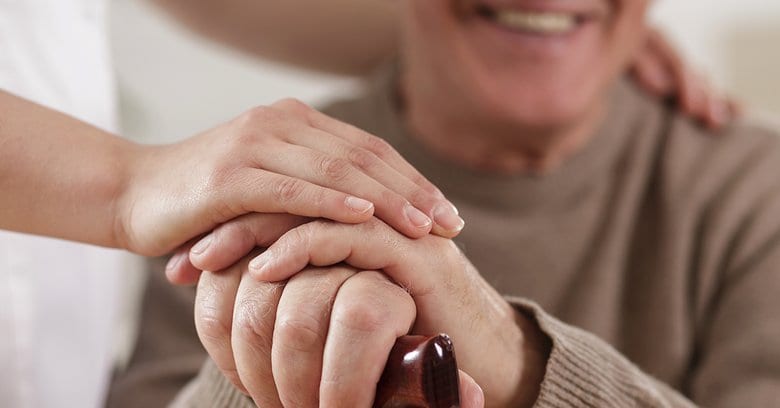
Whether you’re a part-time or full-time caregiver, you know how taxing the job can be. This is especially true when you’re caring for someone who struggles with mobility limitations and requires a lot of physical support.
If you’re struggling with the physical demands that come with caring for an elderly parent or loved one — back pain, shoulder pain, frequent tension headaches, etc. — and are looking for a way to lighten the load (both literally and figuratively), these five tools can help.
1. Rolling Walker
If you frequently have to support your parent or loved one as they walk from room to room, a rolling walker is a great investment.
Any type of walker can significantly improve their ability to move around independently, but rolling walkers are especially nice since they facilitate a more normal walking pattern and don’t need to be lifted up with each step.
It’s still important to keep an eye on your loved one while they’re using the walker, of course, to make sure they don’t trip or fall. But, the walker will minimize the amount of physical support you have to provide, and they’ll be able to handle walking short distances on their own. Considering the many health benefits of walking for senior citizens, this is a great tool to have on hand.
2. Raised Toilet Seat
If your parent or loved one is unable to lower themselves onto and lift themselves up from the toilet on their own, a raised toilet seat might be another worthwhile investment.
A raised toilet seat can minimize the pain that may come with sitting and standing, and it can provide seniors with a greater sense of independence — something many desire, especially when it comes to private matters like using the bathroom.
Raised toilet seats are also affordable and easy-to-install. Even if your parent or loved one doesn’t need one right now, they’re good to have in the event that they do start having a hard time using the bathroom on their own.
3. Handheld Showerhead
Bathing can also be tricky for seniors and caregivers alike. A handheld showerhead makes the process a bit easier.
If your parent or loved one is able to shower independently, a handheld showerhead can simplify the process of adjusting the water temperature and cleaning themselves without having to twist in ways that might not be comfortable for them.
If your parent or loved one needs help bathing, a handheld showerhead makes it easier for you to help them wash. There will be less bending and reaching involved, plus you’ll be able to stay dry in the process.
4. Transfer Devices
One of the most physically demanding tasks for a caregiver is helping to transfer an elderly person from one location to another (usually from a bed to a wheelchair, or vice versa).
It’s easy to hurt your back when transferring a parent or loved one. To help minimize this risk, it’s worth it to invest in a gait belt or lift vest.
These tools help you balance your loved one’s center of gravity as you transfer them from one place or position to another. They also keep your loved one safe and comfortable as they’re transferred, so it’s beneficial for both parties.
5. Wheelchair Lifts
If transferring your loved one up and down the stairs is difficult for you, you may want to consider installing a wheelchair lift on the staircase.
This is a more costly tool than some of the others mentioned on the list, but it’s definitely worth it to lessen the burden that comes with carrying them up the stairs. A wheelchair lift is also safer for your loved one since there’s little-to-no risk of them falling or being jostled as they go up and down the stairs.
If you decide to invest in a wheelchair lift for your loved one, make sure a contractor installs it. This will help you ensure that it gets done properly and meets all safety codes and standards.
Final Thoughts
If caregiving is taking a toll on you physically, it’s important to take care of the problem and invest in tools that can minimize the damage.
Not only do these tools help improve your physical health, but they also ensure that your loved one stays safe and secure as you care for them. Some can even help restore a sense of independence. Remember, when you take care of yourself, everyone else benefits, too.
